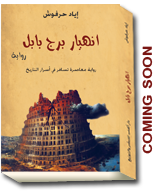
II- APOSTOLIC TEACHINGS SUPPORTING WOMAN RIGHTS AND ESTEEMING WOMEN
1. “The utmost believers among you, are the most adherent to moralities, and the best of you morally is the best to his wife/family” Indexed by Turmudi
2. “The closest to me among you and the dearest, are the most decent to their wives” Indexed by Turmudi
In these honorable teachings of Muhammad (pbuh), he gives us the parameter of faith, as the faith is an internal thrust that expresses itself in one’s adherence to a moral life. Essentially, this should be practiced first with the closest individuals to him, his wife and his family. Perhaps we need to know that the word “Ahl” in Arabic is used to express wife sometimes and the whole family sometimes. Here, we find it intentionally used by the Apostle of God to express both. Again, the affirmation of moralities and direct orders to Muslims to abide by ethical codes support the major divine mission as God’s vicegerents on land. Our broad understanding of the honorable hadieth is not limited in its teaching to men to adopt a good conduct to spouse. Most probably, it was directed to a group of men. Shall the apostle of God be talking to a group of women? He would have given very similar recommendations, to be the best they can to their husbands.
3. Narrated “Muawia ibn Haidara”: I asked the Apostle about the wife’s rights on her husband, he replied “To let her share the same quality of food and dress as you have for your own, never to slap her face, never to undermine her look, and never abandon her alone at home” Indexed by: Abu Daood
The prophet expressed wife’s rights here in a language suitable to the time and culture of his audience. Shall we express it in contemporary terms? We will find it as follows:
- To let her enjoy the lifestyle suitable to her husband’s social class, role and status in society. Needless to mention hadieth highlighted food and clothes as the major needs in the primitive society of Medina, but we surely understand if apostle lived our life, he would have extended it to all the elements of a modern life.
- When a man respects his wife, slapping here face as a humiliation to her humanity will be out of question. Yet, some might understand other forms of beating wives are tolerable in Islam. This stands false when we remember the evolving meaning of “Marouf” as we explained before.
- Respecting their esteem and feminine emotions, apostle ordered us not to undermine our wives look specifically. Every woman knows how this is painful, especially when it comes from her life mate. Again, as beauty represented the major asset of feminine esteem in this nomadic society in the 7th century, apostle emphasized its respect. This we can extend today to respecting her mentality, opinions, work, profession …etc.
- A man according to this teaching is maximally allowed to leave the common bed, as a civil expression of dissatisfaction in some occasions. Apostle limited it to this level, and did not permit abandoning wife lonely in house, as this form of pressure on women represents a stressful situation. Taking in account this “home”, in that era might be a clay house or simply a tent. Therefore, leaving a woman alone might represent a physical threat to her. Another reason was staying in one home after a marital conflict shall facilitate easing it out, compared to prolonged separation if the man left his house.

4. Narrated “ibn Asaker” from “Ali ibn Abi Taleb” that Apostle said “Women are peers to men, none insults them but a coward, and none regards them but a nobleman” Indexed by: Ahmed
5. “Take good care of your wives who are under your protection. You have many rights on them and also you owe to them many” Indexed by: Turmudi
Here is a direct apostolic declaration of women equality to men, as peers. Moreover, linked man’s nobility to his manners with women, stating whoever insults them to be a coward or snaky man, and whoever regards and respects them to be a noble and honorable man. One of the best stories about this, is what Caliph “Omar ibn Abdulaziz” narrated about his uncle “Abdulmalik”, when he said “May God bless Abdulmalik, he was a lion in his governance running the Caliphate’s matters. When he returns to us, we his family, he consort to us in mercy and kindness”. In addition, on other hand, we find one of the best narrations about the other kind of coward men, what an Arabian woman narrated about her husband saying “a Lion against me, and an ostrich in wartime”. We find it psychologically harmonious, a man who is self actualized in practical life and work, has no need to practice authority on his wife or kids, and vice versa, a marginal character in his social and business life, shall always practice power on his family as a sort of compensation.
III – MISINTERPRETED QURANIC VERSES
1. “Men are the caregivers to their women, employing in this regard what Allah had privileged one over another and what they expend of their property, Goodwives abides to righteousness, faithful (to husband) during absence according to what Allah instructed. And for the others whom you fear their drifting, talk to them an advice, abandon them in bed, or (finally) harm them, once they repent to righteousness, you do nothing against them, God is all Superior all Great” Women: 34
To understand why this protocol is considered as a misinterpreted verse, hereunder we disclose one of the common translations of Quran, only where the drifted understanding of the verse is highly expressed:
“Men are the managers of the affairs of women for that God has preferred in bounty one of them over another, and for that they have expended of their property. Righteous women are therefore obedient, guarding the secret for God’s guarding. And those you fear may be rebellious admonish; banish them to their couches, and beat them. If they then obey you, look not for any way against them; God is All-high, All-great.” (Translation of Meanings by: Arthur Arberry)
The wide gap between our translation and the one of “Arberry” is best understood when we discuss the traditional understanding of some Quranic expressions against our own understanding based on our Arabic background, these are the definitions of the words “Qiwamah”, “Qonout”, and “Noshouz”.
(a) Defining “Qiwama“:
In language, “Qiwama“ meant “to look after”, “to guard”, “to observe” or “to give care and guidance”. We can better understand it through other two verses in Quran, when God ordered us to be:
- “Qawwamon” for justice, which means looking after justice in land , as recited in “Women“ Surah: 134
- “Qawwamon” to God and witnessing justly. As mentioned in Table Spread Surah: 8 Then meant observers to God when we witness justly.
In the light of the lingual meaning of “Qiwama” and its meaning in Quran, we understand it as taking care of, or looking after something or someone. Accordingly, while traditionally the verse was widely interpreted as a privilege of man over his wife, it is obviously an assignment to man to give good care to his wife. And while the conventional understanding for the statements after it, was a justification for this privilege. i.e. The man who God privileged with better intellectual capacity, and who finance the family should be subordinated-to and depicted to his wife as a master, we variantly understand the statement after it. Stating, “What Allah had privileged one over another and what they expend of their property” as the tools man asked to employ in his assignment looking after his woman. We perceive what is meant in the statement “what Allah had privileged one over another” to be the relative psychological stability an average man holds, that is usually higher than what an average woman holds. The traditional understanding claiming man to be intellectually superior to woman is proven false by science today.
(b) Defining “Qonot“:
“Qonot “carries a vast of meanings according to its position in the statement. it means “obedience“, and this is how traditional jurists understood it in this verse. Also, it meant “prayer”, “abidance to righteous deeds”, and “silence“. We share the jurists the understanding of the word as obedience, but not to her husband, as the word “Qonot“ in Quranic terms has always been used to express subordination to God. Accordingly, we understand the goodwives as stated in the holy verse to be obedient to God’s orders, including keeping their marital faith to their husbands in all cases, his absence being one. Our understanding is confirmed with the words “according to what Allah instructed” and further supported by another meaning of “Qonot“ as abidance to righteous deeds.
(c) Defining “Noshoz“:
“Noshoz“ in language is derived from “Nashz”, which is prominence in flat landscape, usually used to express drifting from modesty or righteousness. On the light of the words before it, we perceive the mentioned drifting in the holy verse to be general drifting from modesty and righteousness, or a drift from the faithfulness role physically, meaning committing an extra-marital affair. Accordingly, we understand the actions proposed to the husband who has doubts on his wife’s behavior, to advise to her first, then abandon her and finally harm her physically. Shall physical harm look odd when it is a divine order? We need again to consider what the common practice in such situations was, as the normal reaction of an Arab in such cases was to slay the wife! Then, when Islam orders him to harm her physically, and watch not to leave marks, we shall call this advancement. Yet, according to the general concept of “Marouf”, we can deploy beating to any extent from the marital relation, as it became socially unacceptable, and we will be still applying our religious traditions fully. Now, after defining the three words, we can agree the translation we offered in first place, expresses the verse meaning when compared to the traditional translations.
In the coming post, we will continue our visit to what we percieve as misinterpreted verses in relation to women and gender equality concept.













